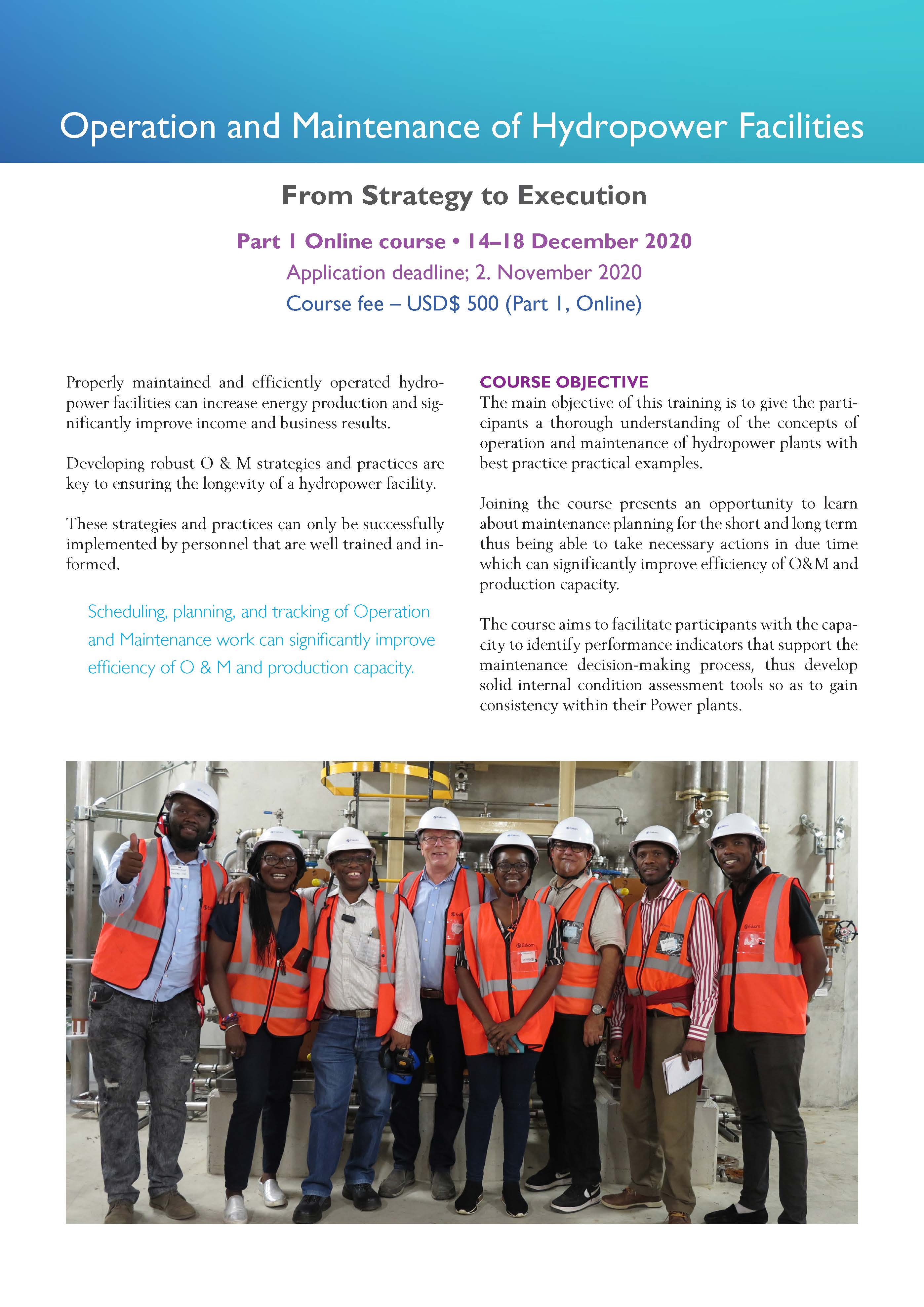
MODULE 1
The main objective of this training is to give the participants a thorough understanding of the concepts of operation and maintenance of hydropower plants with best practice practical examples.
The course aims to facilitate participants with the capacity to identify performance indicators that support the maintenance decision-making process, thus develop solid internal condition assessment tools so as to gain consistency within their Power plants.
Properly maintained and efficiently operated hydropower facilities can increase energy production and significantly improve income and business results.
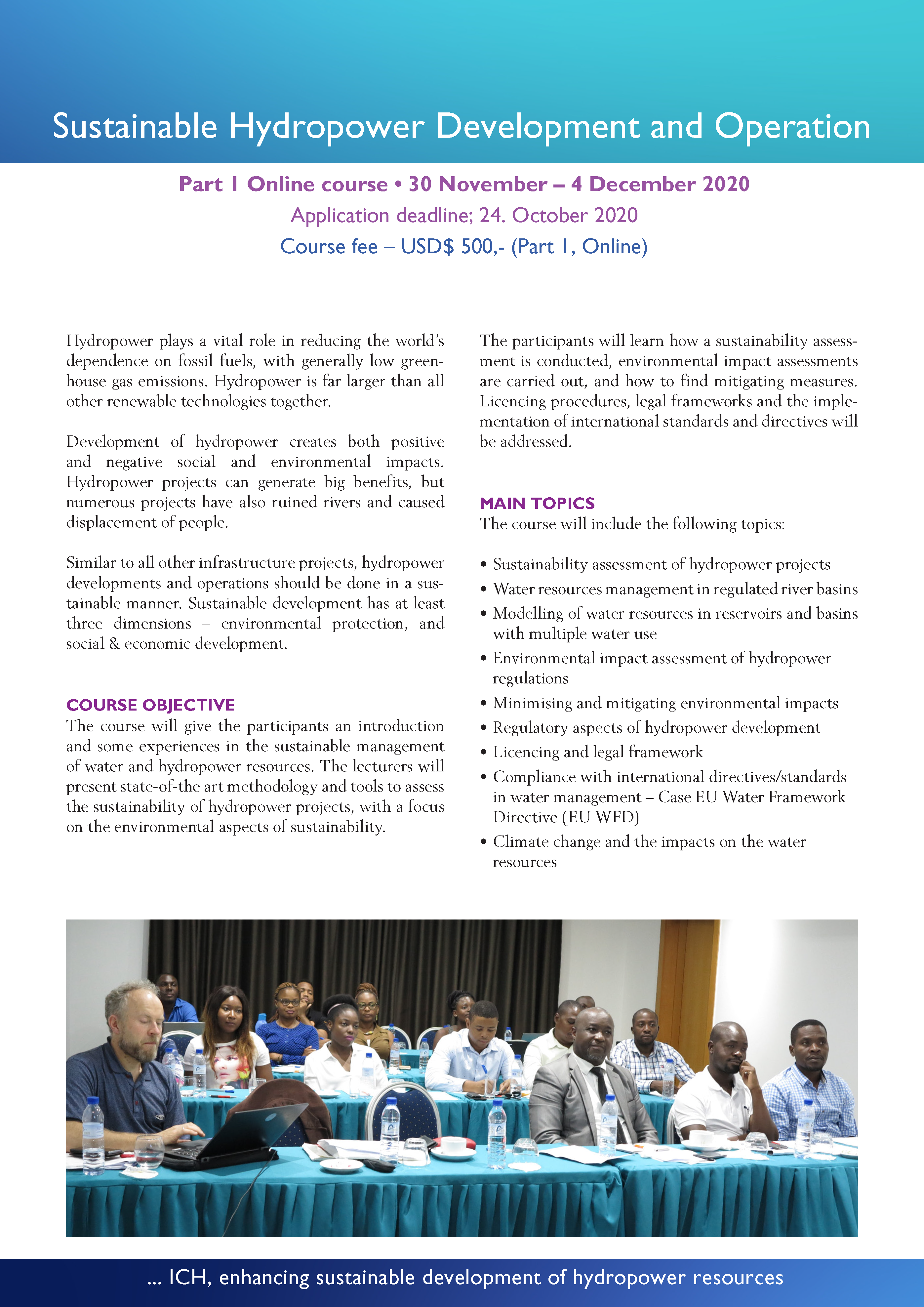
Hydropower plays a vital role in reducing the world’s dependence on fossil fuels, with generally low green-house gas emissions. Hydropower is far larger than all other renewable technologies together.
Development of hydropower creates both positive and negative social and environmental impacts. Hydropower projects can generate big benefits, but numerous projects have also ruined rivers and caused displacement of people.
Similar to all other infrastructure projects, hydropower developments and operations should be done in a sustainable manner.
Sustainable development has at least three dimensions – environmental protection, and social & economic development.
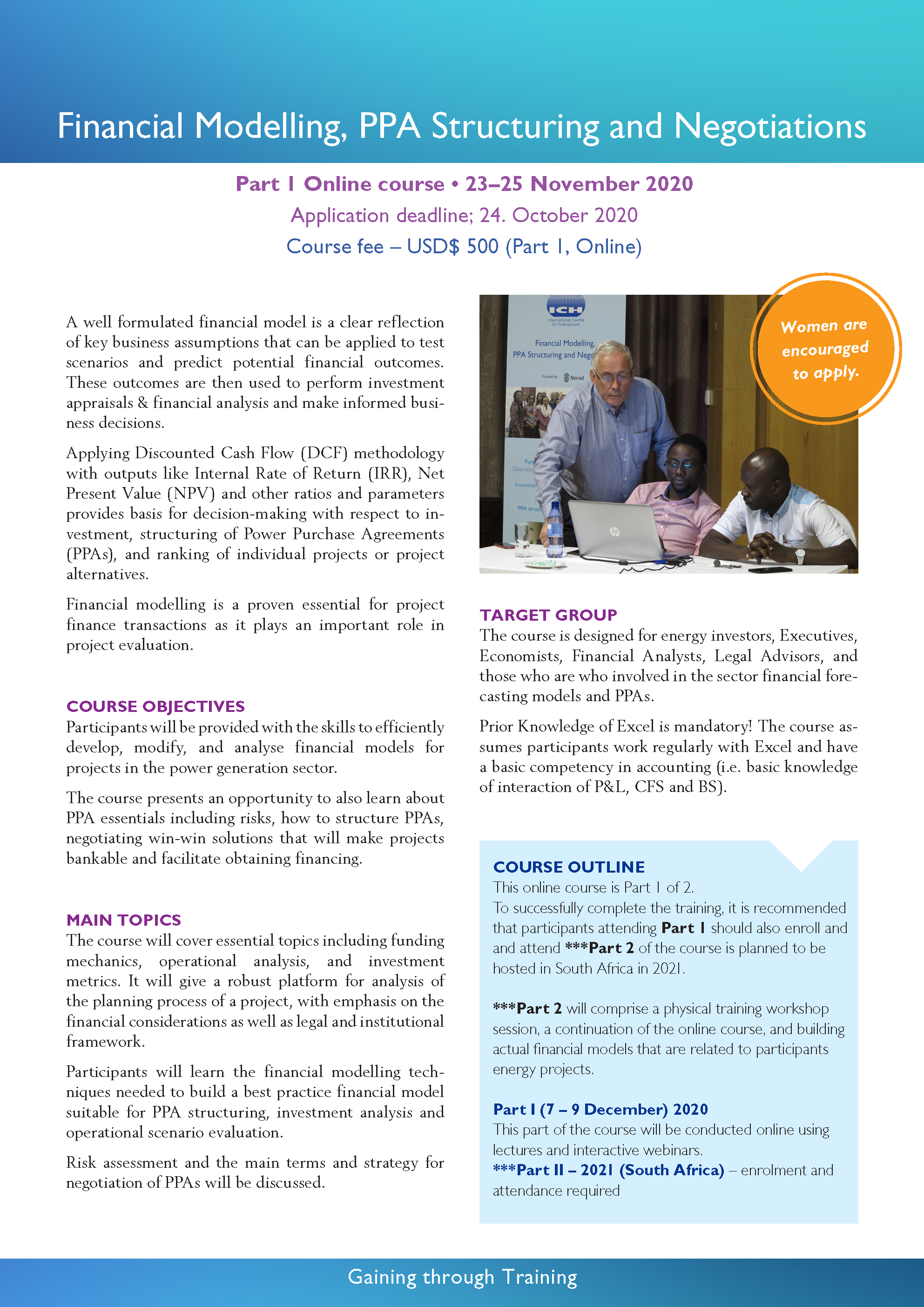
A well formulated financial model is a clear reflection of key business assumptions that can be applied to test scenarios and predict potential financial outcomes. These outcomes are then used to perform investment appraisals & financial analysis and make informed business decisions.
Financial modelling is a proven essential for project finance transactions as it plays an important role in project evaluation.
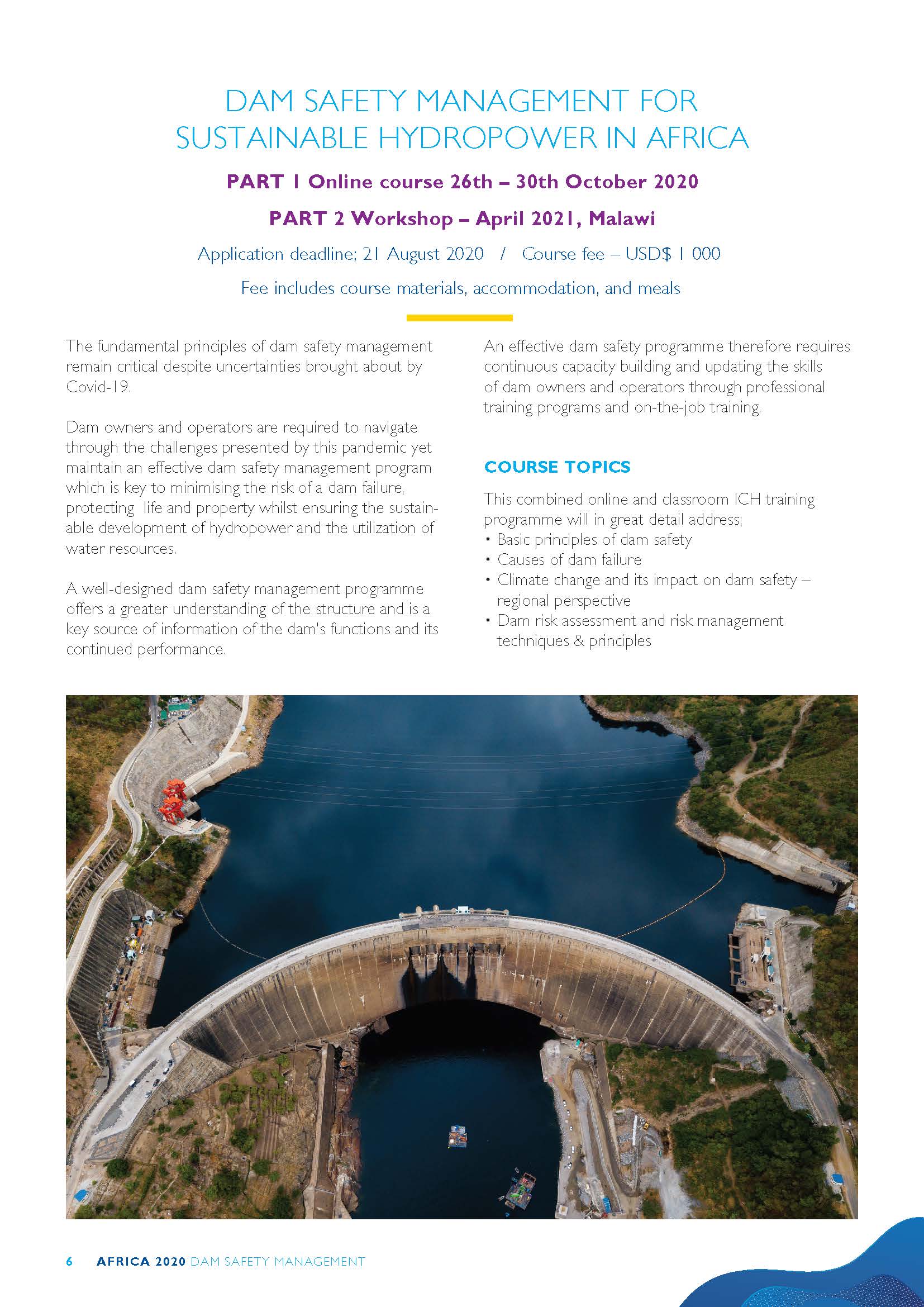
The fundamental principles of dam safety management remain critical despite uncertainties brought about by Covid-19. Dam owners and operators are required to navigate through the challenges presented by this pandemic yet maintain an effective dam safety management program which is key to minimising the risk of a dam failure, protecting life and property whilst ensuring the sustainable development of hydropower and the utilization of water resources. A well-designed dam safety management programme offers a greater understanding of the structure and is a key source of information of the dam’s functions and its continued performance.
This 2-part course aims to advance participants knowledge on dam safety management and offer tools for managing risks and issues associated with dam safety. With this knowledge, participants will be able to further strengthen their dam safety programmes and implement strategies that support emergency response and pandemic planning. Climate change and its impact on dam safety will be an integral part of this training.
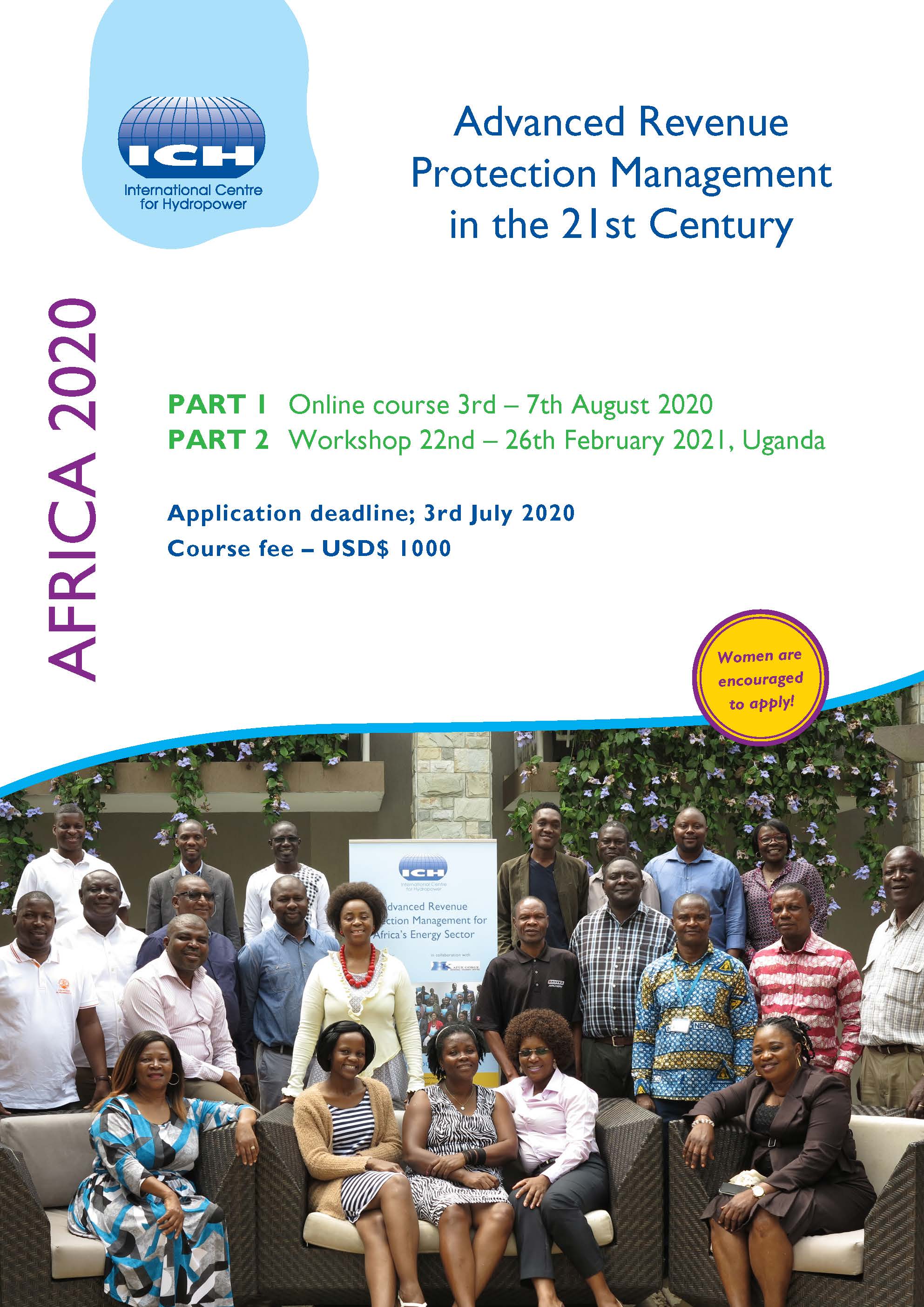
This combined online and classroom training of the Advanced Revenue Protection Management presents a comprehensive introduction to Revenue Protection Management in the 21st Century in the Power Distribution sector with special focus on revenue protection principles, pandemic planning and how utilities should prepare for the TID rollover. Different challenges have been identified, and based on that, a number of remedial measures have been suggested for revenue protection.
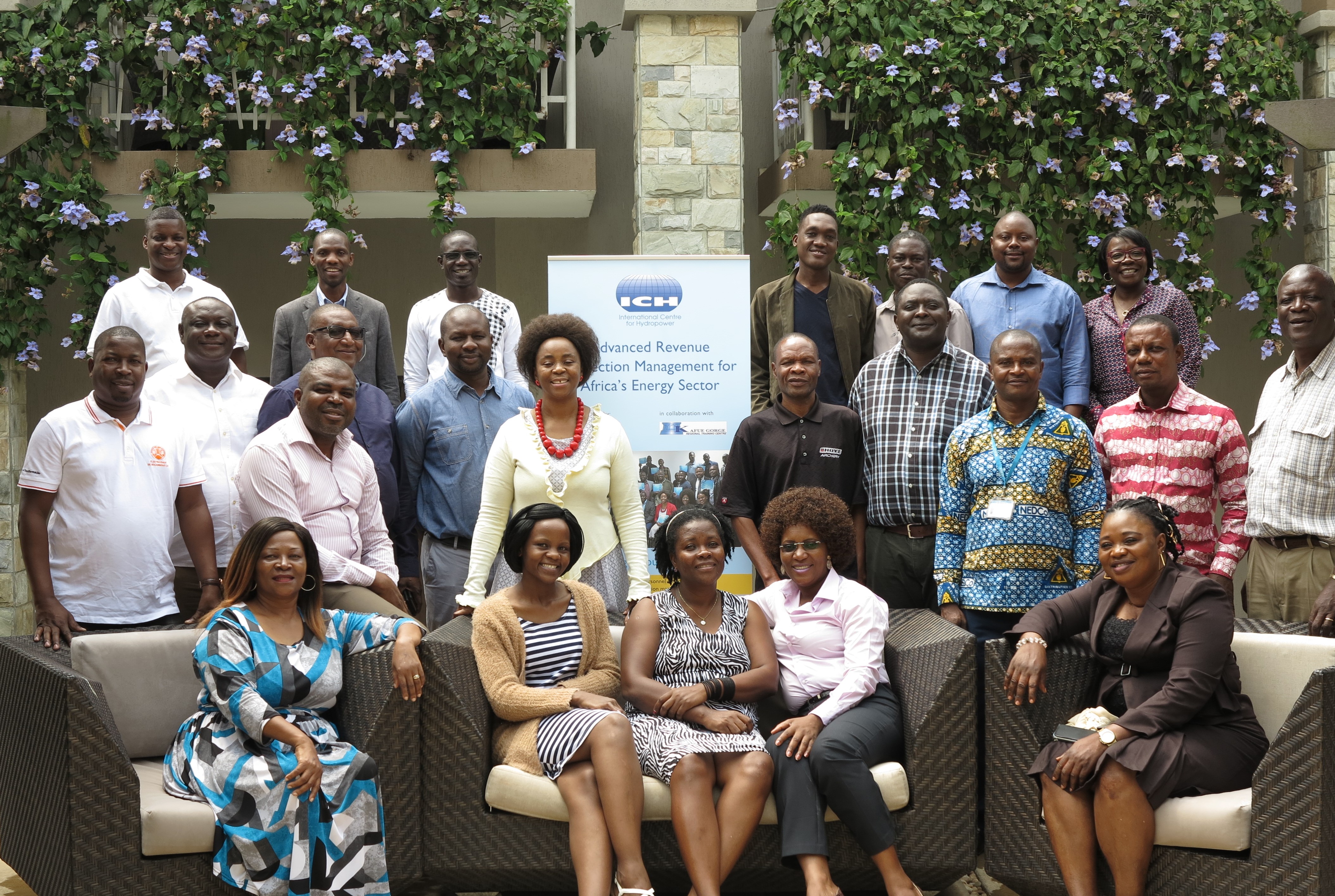
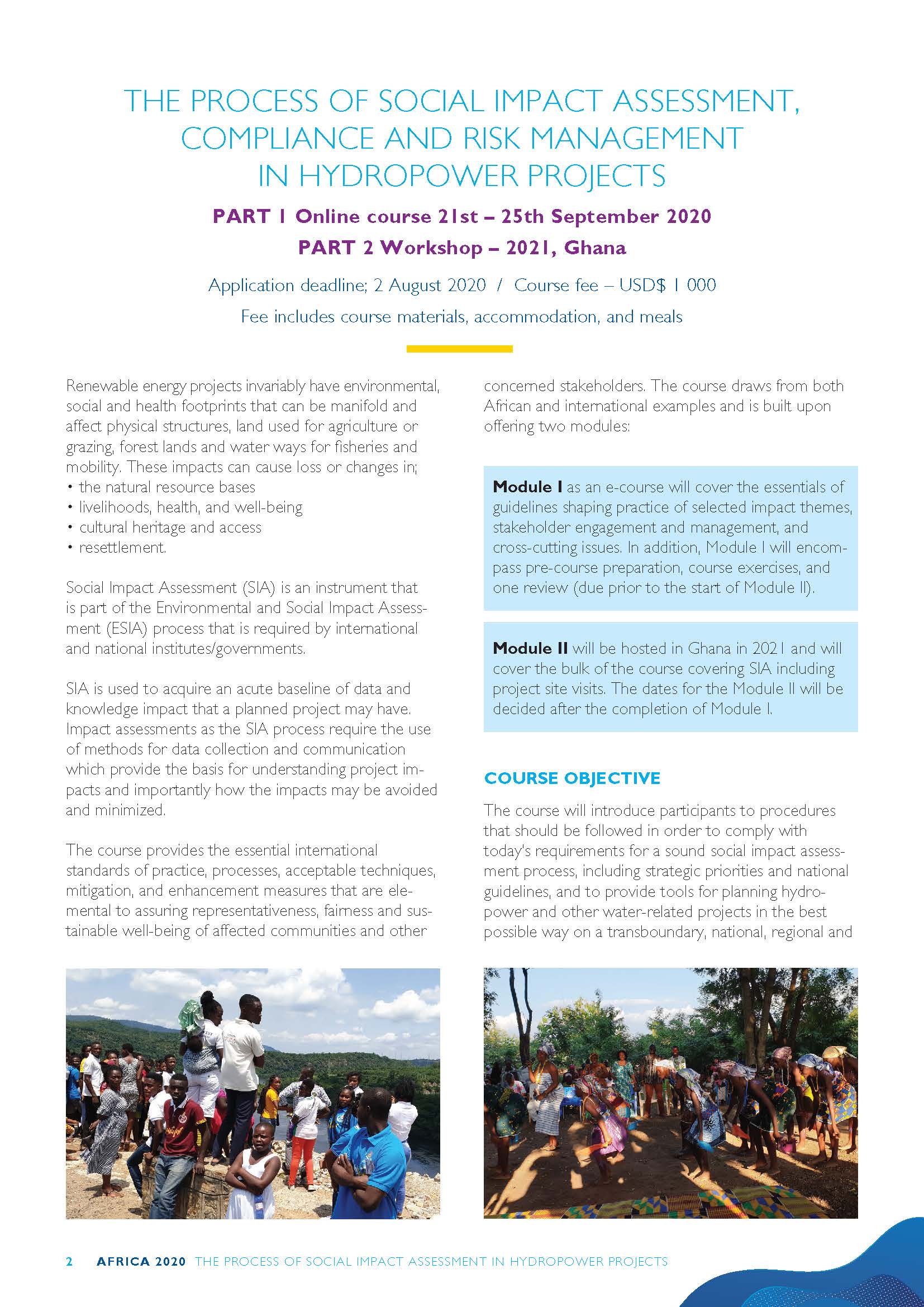
This course provides the essential international standards of practice, processes, acceptable techniques, mitigation, and enhancement measures that are elemental to assuring representativeness, fairness and sustainable well-being of affected communities and other concerned stakeholders. The course draws from both African and international examples and is built upon offering two modules.
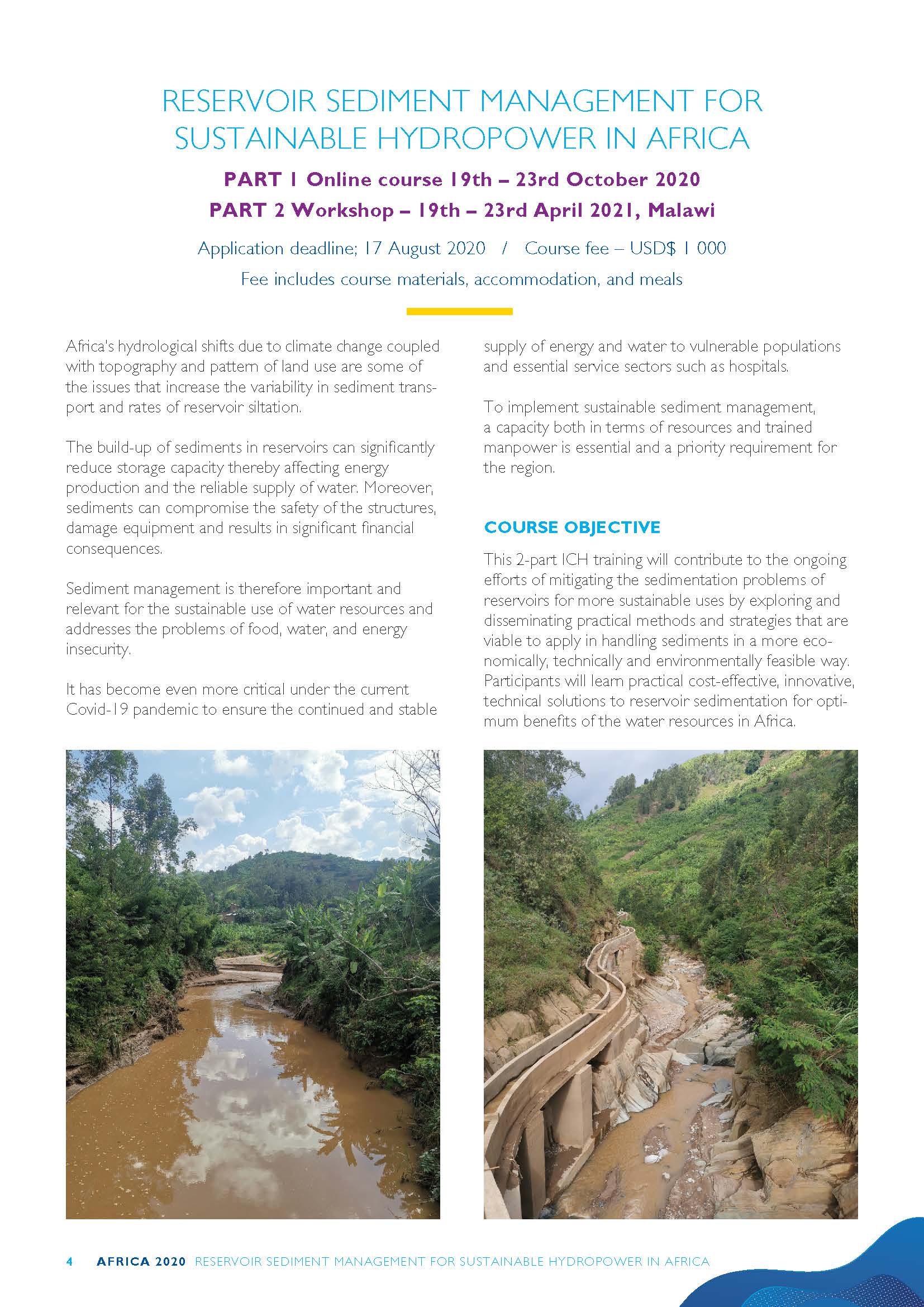
This 2-part ICH training will contribute to the ongoing efforts of mitigating the sedimentation problems of reservoirs for more sustainable uses by exploring and disseminating practical methods and strategies that are viable to apply in handling sediments in a more economically, technically and environmentally feasible way.
Participants will learn practical cost-effective, innovative, technical solutions to reservoir sedimentation for optimum benefits of the water resources in Africa.

- Teacher: Carole Rosenlund
